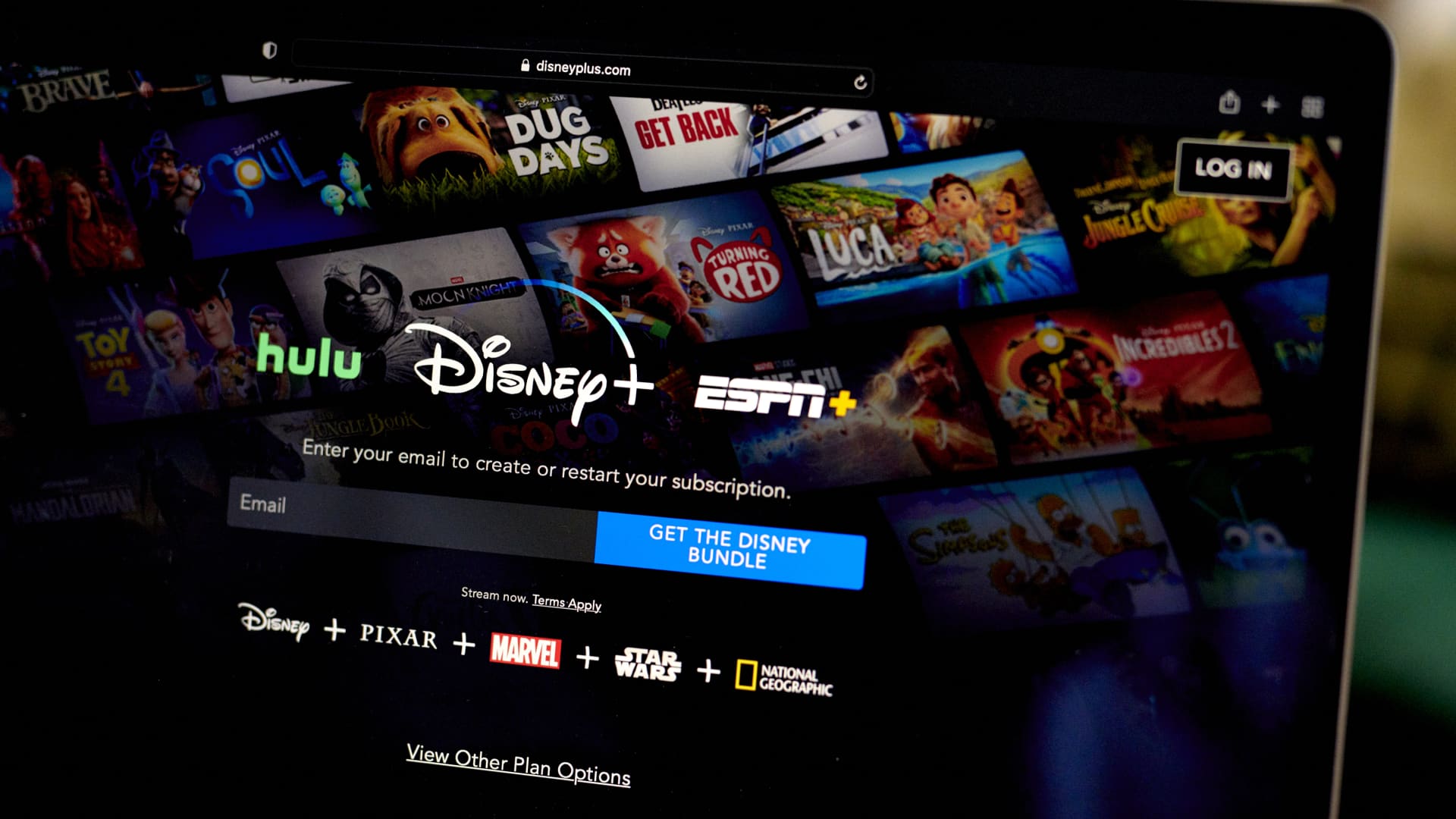Products You May Like
Disney is joining the streaming fight against password sharing.
CEO Bob Iger said on Wednesday’s earnings call that the company is exploring account sharing for streaming and will provide additional details on its policy to curb it later this year.
“We already have the technical capability to monitor much of this,” Iger said Wednesday. “I’m not going to give a specific number, except to say that it is significant.”
The company will roll out tactics to mitigate password sharing in 2024. While Iger said Disney should see some effects from the rollout in 2024, the initiatives to prevent password sharing won’t be completed next year.
The move comes as Disney and its peers have looked for ways to make streaming profitable — methods that have included cutting content spending, introducing cheaper, ad-supported options and preventing account sharing. Disney follows the lead of Netflix, which began rolling out a new account sharing policy earlier this year.
Iger said Wednesday the strategy is a “real priority” for the company.
Disney has three streaming services under its umbrella: the flagship Disney+, Hulu and ESPN+. The three services are also available in a bundle for a cheaper price. The company has previously said it would soon be offering a “one app experience” in the U.S. that incorporates Hulu content into Disney+, although standalone options will still remain.
Streamers have also used price increases to grow revenue.
On Wednesday, Disney said it would raise prices on almost all of its streaming services. Ad-free Disney+ will cost $13.99 a month, a 27% bump. The price of Hulu without ads is increasing to $17.99 a month, a 20% hike. The ad-supported options of Hulu and Disney+ will see prices stay the same.
Iger has said the company views advertising as a key way to reach profitability.
As the company eliminates password sharing, it does not know how the action will affect subscriber growth, Iger said.
“Obviously, we believe there will be some, but we’re not speculating,” he said, adding the change will be an opportunity to grow the business.
Netflix has been a pioneer among streaming services in cracking down on password sharing. It was one of the initiatives Netflix discussed after it began to see subscriber growth stagnate in 2022 and looked for methods to boost revenue. Netflix, like Disney+, added a cheaper, ad-supported tier.
In July, Netflix reported that it added 5.9 million customers during the second quarter as its password sharing crackdown began to take hold in the U.S.
Netflix had previously said that more than 100 million households, or about 43% of its global user base, shared accounts. The company said that affected its ability to invest in new content.
Netflix started to roll out account sharing initiatives internationally first. It notified its U.S. customers in May that they would have to stop sharing accounts.
Netflix subscribers sharing accounts they were given a few options. Members could either transfer a profile of someone outside of their household so the person could begin a new membership and pay on their own. Or, the main account holder could pay an extra fee of $7.99 a month per person outside of their household using their account.
It’s unclear what methods Disney will use to reduce account sharing.
